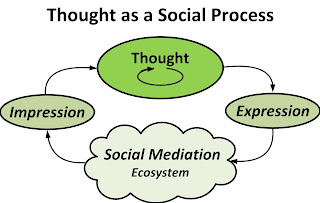Key ideas: Problems in managing social media news feeds, including disinformation, extremism, and hate speech, are reducing to the absurd because of a misguided focus on censorious removal. A new framing is needed to reverse these problems, from the “Twitter Files” and Musk’s confusion about “freedom of speech, but not freedom of reach,” to the absurd pairing of cases on online speech headed to the Supreme Court.
The solution is to shift focus to manage the other end of the proverbial “megaphone” – not the speaker’s end, but the listener’s. Dominant social media platforms are co-opting the “freedom of impression” that we listeners did not realize we had. Proposed remedies based on “delegation” and “middleware” promise to address this, but this new framing in terms of “freedom of impression” is necessary to clarify for all concerned why that is needed from human rights, legal, governance, economic, cultural, and technological perspectives -- and how it can work.This new framing offers a way to apply both/and thinking to cut through many current dilemmas, and to set a direction for the future of freedom and democracy. It also illuminates a new path toward competition in this market.
Operationally, it suggests how to manage networked speech by refactoring the balance of three control points - to balance full freedom of expression with full freedom of impression:
- Censorship as posts and responses enter the network, entirely banning users or removing individual posts before they reach anyone at all -- a threat to freedom of expression.
- Selection of what is fed or recommended out to each user, individually -- a threat or exercise of freedom of impression, depending on who controls it.
- Friction and other measures to enhance the deliberative quality of human social mediation activity -- with little threat to freedom of thought.
- relying less on censorship (bans and removals that have questionable legitimacy, even when guided by the most well-intended proportionality), and
- giving users agency over the selection of what they see (to legitimately balance each speaker's freedom of expression with each listener's freedom of impression), and
- re-creating a truly open and generative social mediation ecosystem that is like what we have been evolving over the past centuries of analog society, but now augmented by digital media tech (instead of de-augmented and disintermediated by it).

.jpg)
